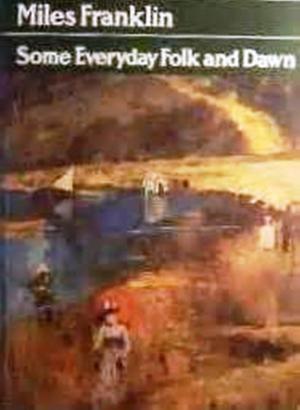| Author: | Zane Grey | ISBN: | 1230000195015 |
| Publisher: | WDS Publishing | Publication: | November 6, 2013 |
| Imprint: | Language: | English |
| Author: | Zane Grey |
| ISBN: | 1230000195015 |
| Publisher: | WDS Publishing |
| Publication: | November 6, 2013 |
| Imprint: | |
| Language: | English |
The sea out there, dark and heaving, somehow reminded Forrest of the rolling rangeland of his beloved West, which he prayed to see once more, before he succumbed to havoc the war had done his body and soul.
He leaned propped against the rail of the great ship, in an obscure place aft, shadowed by the life-boats. It was the second night out of Cherbourg and the first time for him to be on deck. The ridged and waved Atlantic, but for its turbulence, looked like the desert undulating away to the uneven horizon. The roar of the wind in the rigging bore faint resemblance to the wind in the cottonwoods at home—a sound that had haunted him for all the long years of his absence. There was the same mystery in the black hollows of the sea as from boyhood he had seen and feared in the gloomy gulches of the foothills.
But he hated this restless, unstable, treacherous sea which seemed a part of the maelstrom in which he had been involved. He yearned for the mountains, the desert, the valley of cottonwoods, home and mother, far across this waste of waters, those dear remembered ties of the past that still survived. The emotion had only come strong during those moments when, ignoring his weakness and pain, he had clung to the rail, gazing into the pale obscurity of the night, out over the boundless ocean, with the consciousness that the dream that had mocked him during nine months on a hospital cot had become a reality. He was on the way home—home to Cottonwoods!
He visualized the winding valley between the silver hills beautiful with the green-gold trees that gave their name to the place; the rocky stream that wound leisurely down, bordered by sage and willow, bringing the blue-tinted snow water from the mountains; the old rambling Spanish ranch house, white-walled, with the vines climbing up to the red tiles.
This retrospect seemed to release him from the vise of the war horrors that had clamped him. It would be best, now he was going home, to live in thought of the brief future allotted him; and his mind clutched at the revivifying memories.
There had been changes at home, his mother's recent letter had intimated—a strange letter coming many months after a long silence, full of thanksgiving and joy that the report of his being among the missing had been erroneous, and evidently stultified over ills she had not the courage to confide. Thinking back, Forrest recalled a letter here, another there, widely separated, the content of which had not augured well for the prosperity of the Forrests. But he had dismissed them with a bitter laugh of recollection at the absurd idea of Clay Forrest, his father, ever losing land or stock enough to matter.
The sea out there, dark and heaving, somehow reminded Forrest of the rolling rangeland of his beloved West, which he prayed to see once more, before he succumbed to havoc the war had done his body and soul.
He leaned propped against the rail of the great ship, in an obscure place aft, shadowed by the life-boats. It was the second night out of Cherbourg and the first time for him to be on deck. The ridged and waved Atlantic, but for its turbulence, looked like the desert undulating away to the uneven horizon. The roar of the wind in the rigging bore faint resemblance to the wind in the cottonwoods at home—a sound that had haunted him for all the long years of his absence. There was the same mystery in the black hollows of the sea as from boyhood he had seen and feared in the gloomy gulches of the foothills.
But he hated this restless, unstable, treacherous sea which seemed a part of the maelstrom in which he had been involved. He yearned for the mountains, the desert, the valley of cottonwoods, home and mother, far across this waste of waters, those dear remembered ties of the past that still survived. The emotion had only come strong during those moments when, ignoring his weakness and pain, he had clung to the rail, gazing into the pale obscurity of the night, out over the boundless ocean, with the consciousness that the dream that had mocked him during nine months on a hospital cot had become a reality. He was on the way home—home to Cottonwoods!
He visualized the winding valley between the silver hills beautiful with the green-gold trees that gave their name to the place; the rocky stream that wound leisurely down, bordered by sage and willow, bringing the blue-tinted snow water from the mountains; the old rambling Spanish ranch house, white-walled, with the vines climbing up to the red tiles.
This retrospect seemed to release him from the vise of the war horrors that had clamped him. It would be best, now he was going home, to live in thought of the brief future allotted him; and his mind clutched at the revivifying memories.
There had been changes at home, his mother's recent letter had intimated—a strange letter coming many months after a long silence, full of thanksgiving and joy that the report of his being among the missing had been erroneous, and evidently stultified over ills she had not the courage to confide. Thinking back, Forrest recalled a letter here, another there, widely separated, the content of which had not augured well for the prosperity of the Forrests. But he had dismissed them with a bitter laugh of recollection at the absurd idea of Clay Forrest, his father, ever losing land or stock enough to matter.















